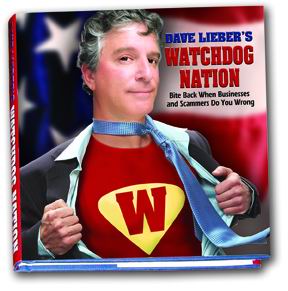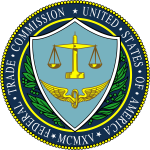I won’t let go of MoneyGram.
On the one-year anniversary of the MoneyGram’s $18 million settlement with the Federal Trade Commission for its role in allowing gullible Americans to wire money to Canadian scammers, I went out and searched to see if it’s still happening.
It is.
I didn’t have to go far to find a victim. Only a few miles from Watchdog Nation HQ to find another victim of the Granny Scam who sent the money through MoneyGram, even though the company promises that it has cleaned up its act.
But first I must apologize to R. for passing on bad information. When a year ago, I first reported how MoneyGram had to pay $18 million back to customers who wired money to scammers, I attached an advice box to the column. (See last year’s video and Watchdog Nation report on MoneyGram here.)
The box stated, “If you were scammed in a MoneyGram wire transfer, here’s how you can apply for your part of the $18 million settlement.” I recommended calling MoneyGram and the Federal Trade Commission. That’s what MoneyGram and the FTC told me to tell readers at the time.
So R., who lives in Bedford, Texas followed my advice. A month before, he had received a letter telling him he won the Maple Leaf Lottery. His prize, he was advised, was $520,000! It made sense. He had traveled in Canada and entered a few contests. Now all he had to do was deposit the first prize check in his bank, then take that money and wire it to Canada for his taxes and fees so he could get the rest.
He did as told. A few days later, he got a note from his bank that the check was a counterfeit. He lost $4,000. (An embarrassed R. asks that he not be identified.)
My original notes from last year quote an FTC spokesman telling me, “We’ve got $18 million here, and that’s going to mean a bunch of money going back to defrauded consumers.”
Not to R.
“Nope,” he says. “Got nothing.”
After he filed complaints with MoneyGram and the FTC, he never heard back.
He asked for help, and I contacted MoneyGram on his behalf. A company spokeswoman verified that his claim was not included in the settlement because it came after the redress program had ended. Besides, R. had no proof that he faxed his complaint to MoneyGram in the first place. (Remember to get written or taped confirmation!)
An FTC spokesman tells me that the $18 million ran out almost immediately after the settlement was publicly announced.
“At that point, literally, both the FTC and MoneyGram were inundated with complaints from victims,” FTC’s Todd Kossow said.
If the new complaints had been added, “They would have diluted the pool,” he said.
He estimated that “the amount lost by consumers through fraud-induced money transfers using MoneyGram’s system likely was in the hundreds of millions of dollars for the years 2004 through 2008.”
R. wouldn’t have qualified anyway, Kossow explained, because, as MoneyGram stated, his transaction occurred after the qualifying period for settlements ended in 2008.
The government says 34,000 redress checks were mailed to victims — totaling $18 million. The average check was $520. But most victims lost a lot more than that in various scams in which money was wired to MoneyGram outlets in Canada.
The original FTC complaint accused MoneyGram of helping U.S. consumers transfer $84 million to scammers in this country and abroad. The FTC alleged that 10 percent of MoneyGram’s Canadian agents (134 employees) were involved in the scams as partners.
MoneyGram’s executives were warned and did nothing, the agency said. Company whistle-blowers were disciplined or fired. The FTC alleged that company leaders said fixing the problem was too costly.
At the time, MoneyGram announced that it would not fight the complaint to avoid “battling it out through a long and costly trial.”
Recently, MoneyGram spokeswoman Lori O’Briant told me the company has worked hard to beef up its anti-fraud efforts, including increasing fraud specialists on staff, using “a new multimillion dollar Fraud Prevention System that helps stop fraud before money is sent.” She said it also had built closer relationships with law enforcement agencies around the world, updated its money transfer forms to alert consumers of potential danger and improved its hiring practices.
So how’s that working?
Well, in September 2010, a 74-year-old Hurst, Texas woman was swindled out of $6,000 in “the granny scam” when she wired money to Canada thinking it was for her nephew. Hurst police tell me that $3,000 was wired through Western Union, and $3,000 was wired through MoneyGram.
R. says there’s really no policing to detect and punish those involved. “I even spoke to the Royal Canadian Mounted Police, and their attitude was, ‘We’ll be looking out for them. We know it’s happening, but it’s hard to catch them.'”
R. also filed a complaint with the U.S. Postal Inspection Service (his “winning” letter arrived in the mail). But nothing came of that, either. Service spokeswoman Amanda McMurrey says, “Typically, in these situations, there’s not much we can do except forward that on to the government of Canada.”
The best defense, she says, is to understand that a bank will deposit cash for a check into a person’s account in a few days, but if the bank later learns the check is a counterfeit, the account holder is responsible for repaying the money.
Requests for wire transfers are a telltale sign of a scam. Never wire money to anyone without double-checking the circumstances and individuals involved.
# # #
In fairness, Watchdog Nation wants to share MoneyGram’s response to the above in full:
“At MoneyGram, we take consumer fraud very seriously. Our ability to provide safe and reliable payment services for our consumers is critically important to our business.
“Over the last year, MoneyGram has renewed it commitment to preventing fraud. Measures undertaken by the company include:
- Tripled anti-fraud staff
- Intensified operational scrutiny of transactions with a new multi-million dollar Fraud Prevention System that helps stop fraud before money is sent
- Expanded global outreach with law enforcement and regulatory agencies
- Reporting to and communicating with FTC and partnering with other financial services providers, law enforcement agencies and industry councils to promote consumer awareness
- Updated our money transfer send form to better educate customer and raise awareness of scams
- Created new agent facing policy – enhanced requirements for applicants to become a MoneyGram agent, as well as enhanced agent education/training to mitigate fraud
“As a result of our actions, we have prevented more than $30 million dollars in fraud this year alone. In addition, fraudulent transactions sent from the United States to Canada have decreased by 75% since May (Canada has historically been one of the most active fraud corridors).
“Additionally, in order to protect and educate our customers we:
- Post warnings on our website on various kinds of scams, as well as warn consumers that MoneyGram should not be used for Internet purchases
- Clearly communicate and warn customers about possible fraudulent transactions on our money transfer forms – including asking if the customer is sending money for the purchase of a car, or rent an apartment, or claim a lottery, etc.
- Provide training for agents to help spot possible fraudulent transactions
- Clearly alert consumers to never send money to people they do not know
- We ask customers who believe they have been a victim of fraud to contact us at 1-(800)-MoneyGram as well as report it to local police. We can then work with police and federal authorities who will further investigate the scam.”
Lori O’Briant
Corporate Communications & Media Relations Manager
MoneyGram International
###
Read the FTC’s Consumer Alert “Money Transfers Can Be Risky Business”
###
Dave Lieber, The Watchdog columnist for The Fort Worth Star-Telegram, is the founder of Watchdog Nation. The new 2010 edition of his book, Dave Lieber’s Watchdog Nation: Bite Back When Businesses and Scammers Do You Wrong, is out. Revised and expanded, the book won two national book awards in 2009 for social change. Twitter @DaveLieber






